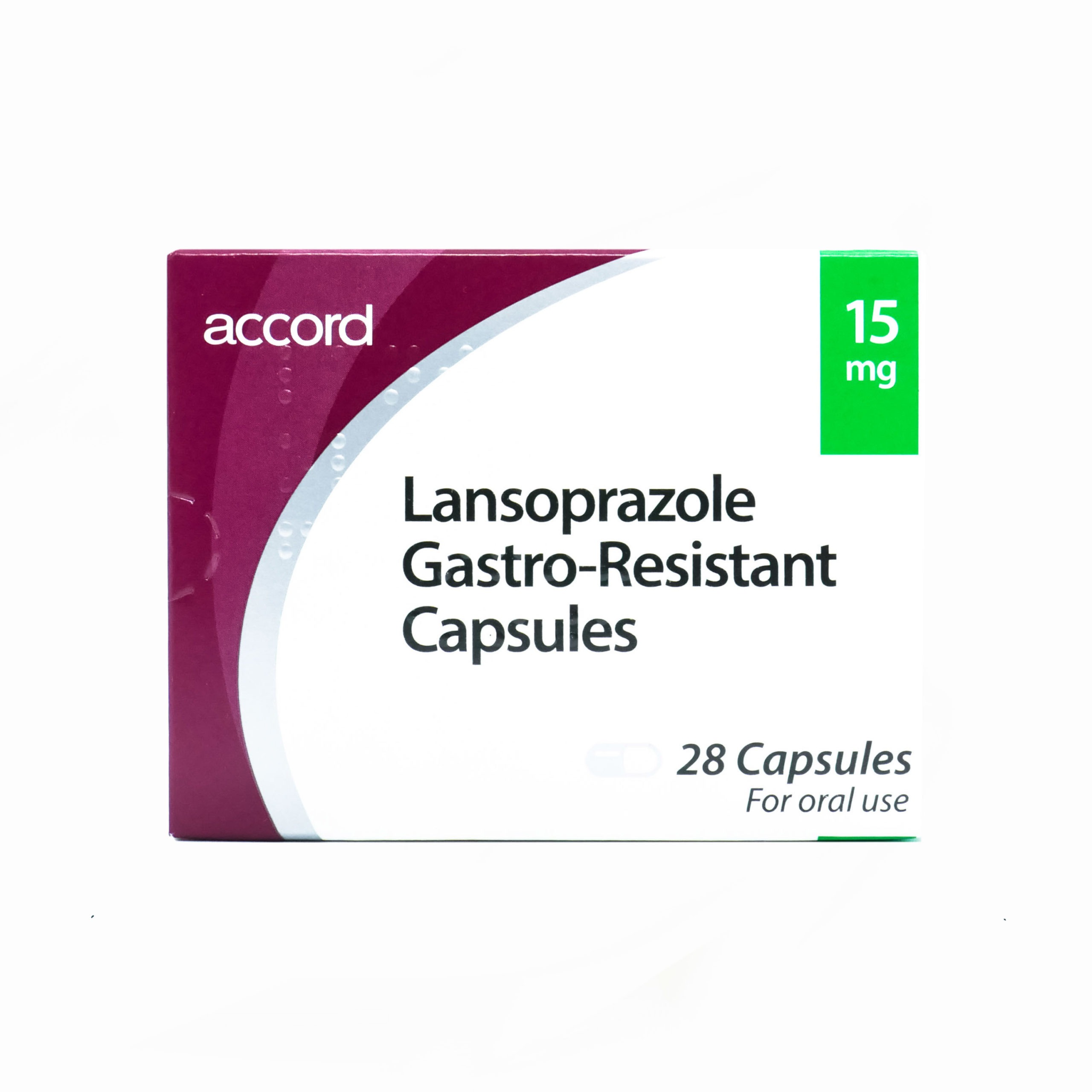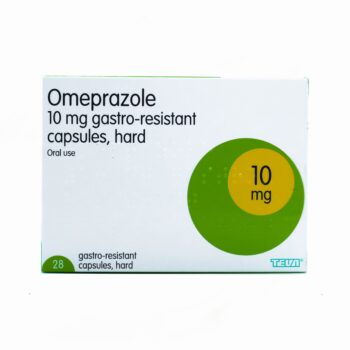What Are Lansoprazole Capsules?
Lansoprazole capsules are a type of medication known as a proton pump inhibitor (PPI). They work by lowering the amount of acid produced in the stomach, helping to relieve conditions caused by excess stomach acid. These include acid reflux, stomach ulcers, and inflammation of the oesophagus.
This medication is used for both short-term and long-term treatment of acid-related digestive issues, depending on the severity of the condition and a doctor’s recommendation.
What Are Lansoprazole Capsules Used For?
Lansoprazole is prescribed to treat several conditions related to excess stomach acid, including:
— Gastro-Oesophageal Reflux Disease (GORD) – a condition where stomach acid travels up into the oesophagus, causing discomfort, heartburn, and irritation.
— Stomach and duodenal ulcers – helps heal ulcers in the stomach or small intestine and reduces the risk of them returning.
— Reflux oesophagitis – used to ease inflammation in the oesophagus caused by repeated acid exposure.
— Helicobacter pylori infections – combined with antibiotics to remove the bacteria responsible for certain stomach ulcers and prevent them from coming back.
— Ulcers linked to NSAID use – taken to prevent or treat ulcers caused by long-term use of non-steroidal anti-inflammatory drugs (NSAIDs), such as ibuprofen.
— Zollinger-Ellison Syndrome – a rare condition that causes the stomach to produce too much acid, leading to severe ulcers and digestive issues.
How Do Lansoprazole Capsules Work?
Lansoprazole works by reducing the amount of acid produced in the stomach. It does this by blocking proton pumps, which are responsible for acid secretion in the stomach lining.
By lowering acid levels, Lansoprazole helps to relieve symptoms of acid-related conditions and gives the stomach and oesophagus time to heal from irritation, ulcers, or inflammation.
How Should Lansoprazole Be Taken?
Take Lansoprazole once a day, preferably in the morning. For the best results, take it at least 30 minutes before eating.
Swallow the capsule whole with a glass of water. Do not chew, crush, or break it, as this can affect how the medication works.
If swallowing is difficult, speak to a doctor or pharmacist about other ways to take it.
Are There Any Side Effects?
Some people may experience common side effects, such as headache, dizziness, nausea, diarrhoea, constipation, stomach pain, or a dry mouth.
Less common side effects include swelling, joint or muscle pain, and mild mood changes.
Rare side effects may involve liver problems, allergic reactions, or skin conditions.
If symptoms persist or become severe, seek medical advice.
Who Should Avoid Lansoprazole?
Lansoprazole may not be suitable for everyone. Avoid taking it if you:
— Are allergic to lansoprazole or similar medications.
— Have liver disease—a doctor may need to adjust your dosage.
— Take certain medications, including HIV treatments, antifungal drugs, or blood thinners, as Lansoprazole can affect how they work.
Always check with a doctor before starting Lansoprazole if you have any concerns about existing health conditions or medications.
How Should Lansoprazole Be Stored?
To keep Lansoprazole effective and safe to use, follow these storage guidelines:
— Keep in a dry place below 30°C.
— Store out of reach of children.
— Do not use after the expiry date printed on the packaging.

